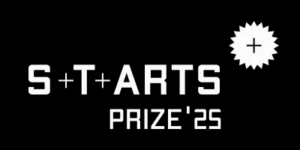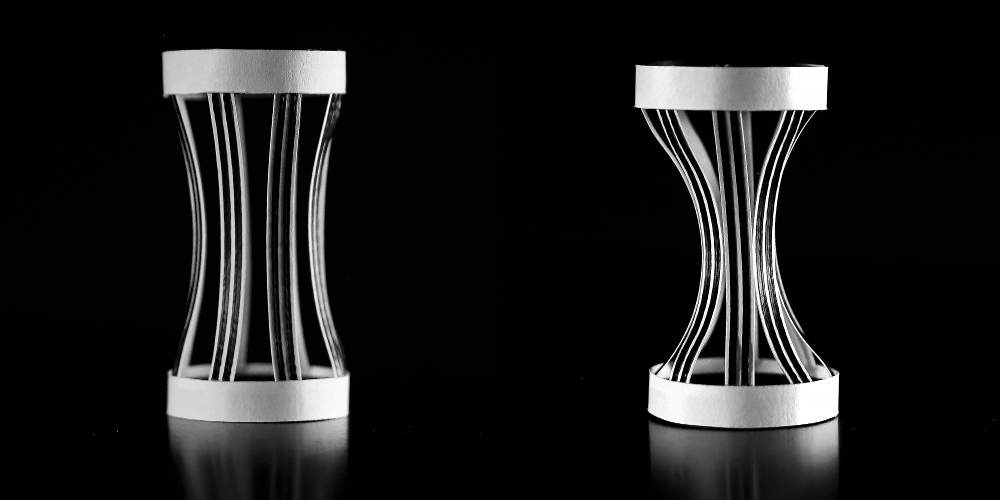Honorary Mention
Paper is a lightweight, abundant, and bio-degradable material. In addition, paper affords rich physical interactions including folding, printing, and painting on its surface. In recent years, paper has become increasingly interesting as a material in new interface design including paper robots, paper power generators, electronic pop-up books, animated origami, foldable artifacts, and so on. While many of these paper systems require customized actuation mechanisms, a missing component for paper-based interfaces is a low-cost, easy to fabricate, flexible to customize, reversible, and electronically-controllable actuator that is embedded within the paper.
We present the design and exploration of a new electrical and reversible paper actuator printed by a FDM 3D printer. The actuator is composed of inexpensive materials, such as common paper and off-the-shelf thermoplastic printing filaments. The fabrication process is fast and straightforward, which requires a single layer printing with a desktop FDM printer. Our paper actuator can be easily embedded into everyday objects to enable new types of paper-based shape-changing interfaces that exhibit motion, transformation, and rich interactivities such as pop-up books, toys, origami robots, and lampshades.
Printed Paper Actuator is the project that achieves a low cost, reversible and electrical actuation and sensing method. This method that requires simple and easy fabrication steps enables our paper actuator to achieve different types of motion and even various electrical sensing abilities: touch sensing, slider, and self-bending-angle detection. We introduce a software tool that assists the design, simulation, and printing toolpath generation.
Credits
Morphing Matter Lab, Human-Computer Interaction Institute, Carnegie Mellon University
Director: Prof. Lining Yao
Design lead: Guanyun Wang
Design team: Tingyu Cheng, Youngwook Do, Humphrey Yang, Ye Tao, Jianzhe Gu, Byoungkwon An
The Project Research Paper: Printed Paper Actuator: A Low-cost Reversible Actuation and Sensing Method for Shape Changing Interfaces
Authors of the Project Research Paper: Guanyun Wang*, Tingyu Cheng*, Youngwook Do, Humphrey Yang, Ye Tao, Jianzhe Gu, Byoungkwon An, and Lining Yao. (*Contributed Equally)
By developing transformative and adaptive materials, the Morphing Matter Lab designs interfaces that redefine the interactive relationship between human, other living organisms, environment, objects, and intangible data. We challenge the definition of traditional human computer interface that was constrained by a computer screen, and encode information and interactivity into physical materials. We call such interactive material “morphing matter”. Lining Yao, a designer and Assistant Professor of Human-Computer Interaction Institute (HCII) at Carnegie Mellon University, is Director of the Morphing Matter Lab.
Jury Statement
We have been living with paper for more than two thousand years. It is a commodity that closely interfaces with human beings, even in this digital age. There have been several attempts at “tech paper innovation” over the past few years, for example, circuit ink printers and pens, but there has not yet been a huge innovation. However, the Printed Paper Actuator takes a new approach—not just printing circuit but actually kinetically working with paper. This innovation transforms the old media of paper and signals a new phase of media expression for industrial purposes (prototyping) and/or for pleasure (DIY for kids). These technological and material innovations take our idea of paper to the next level.



